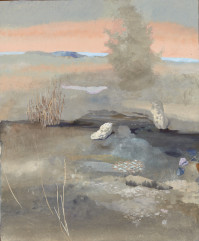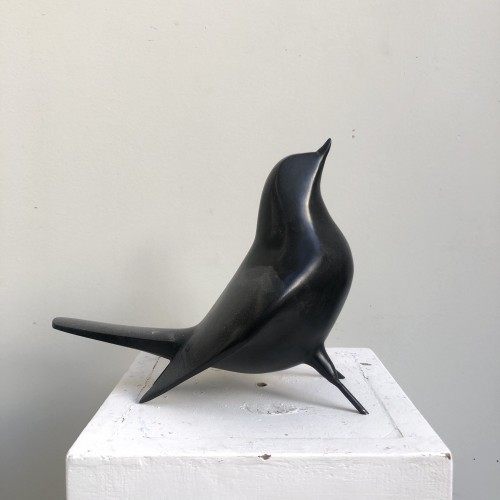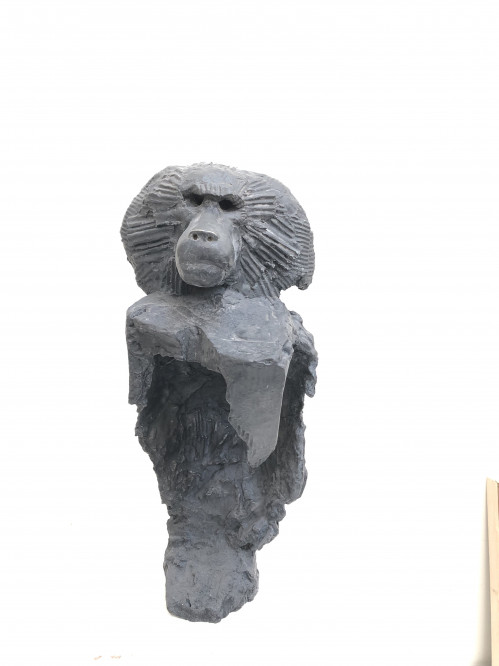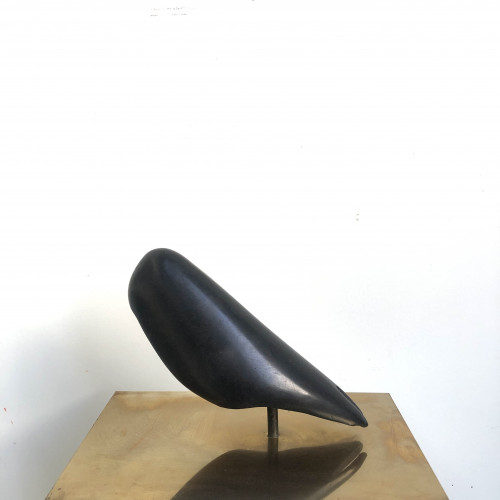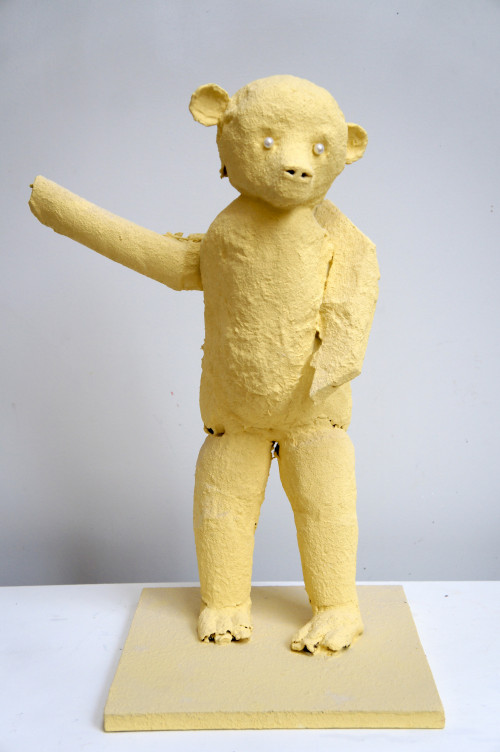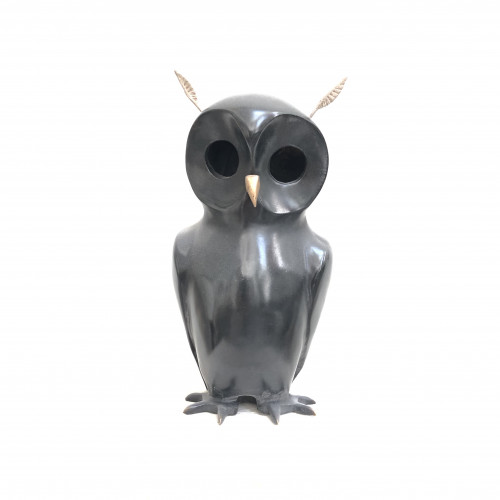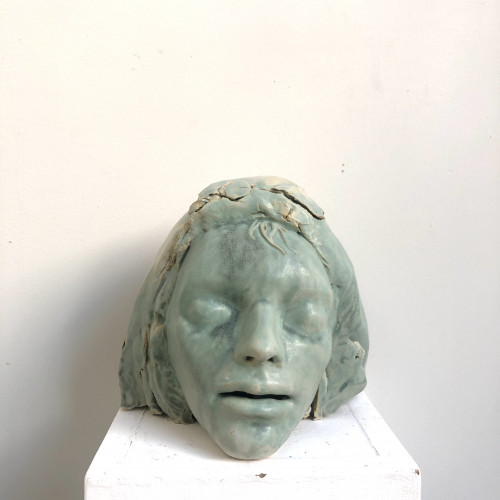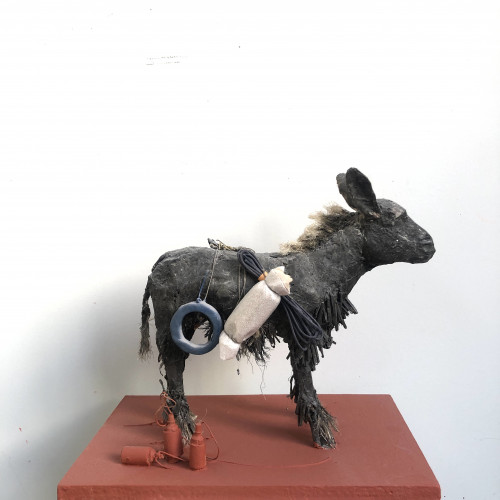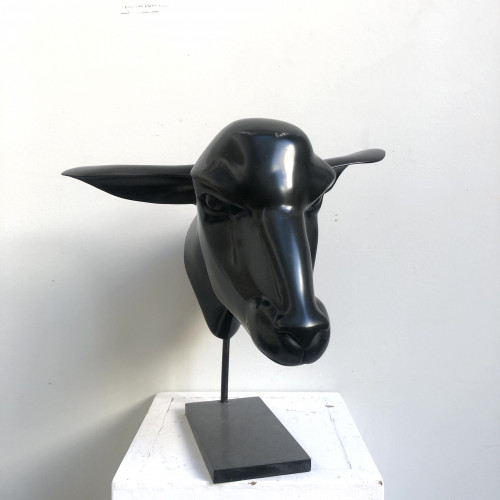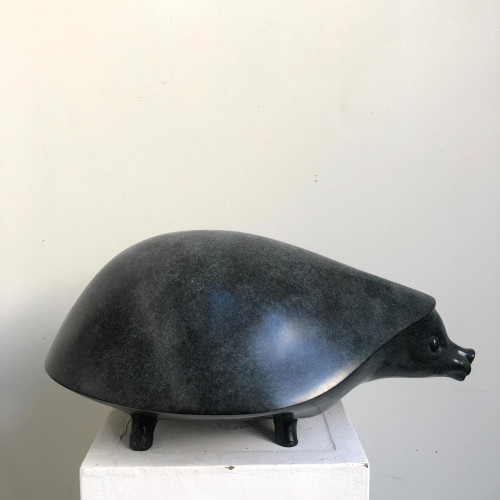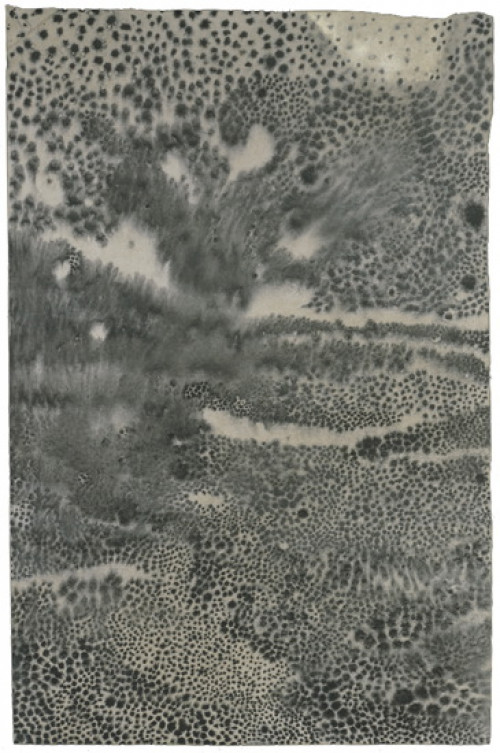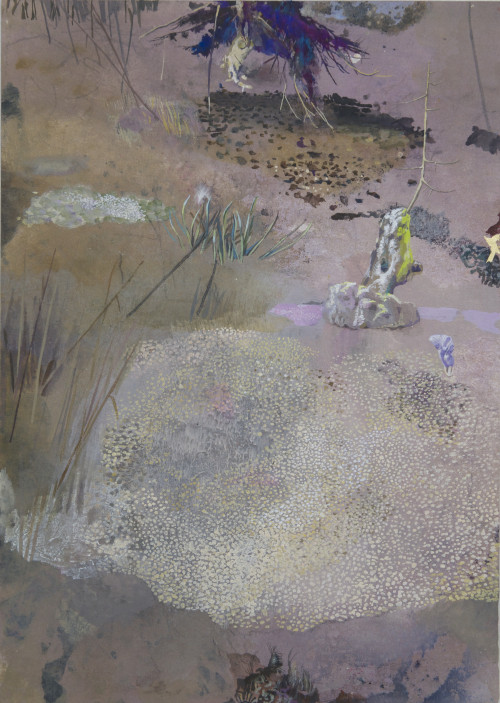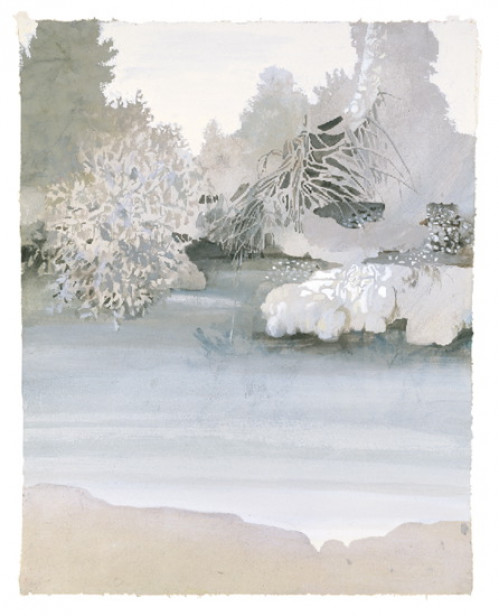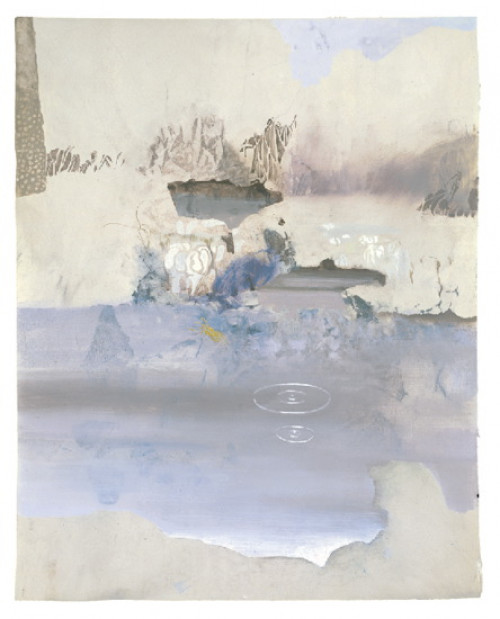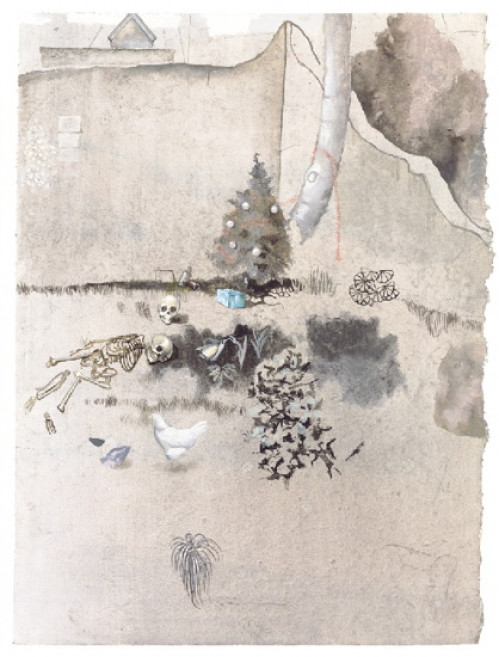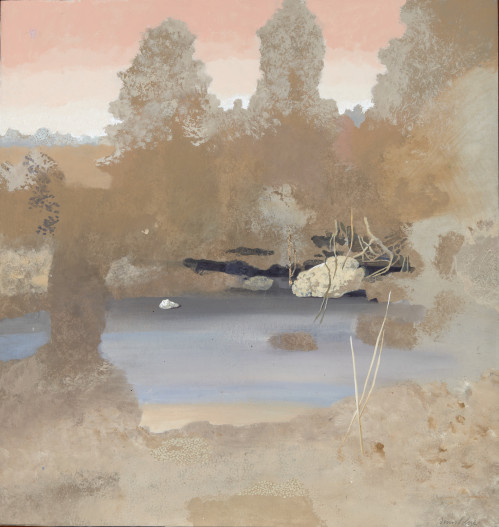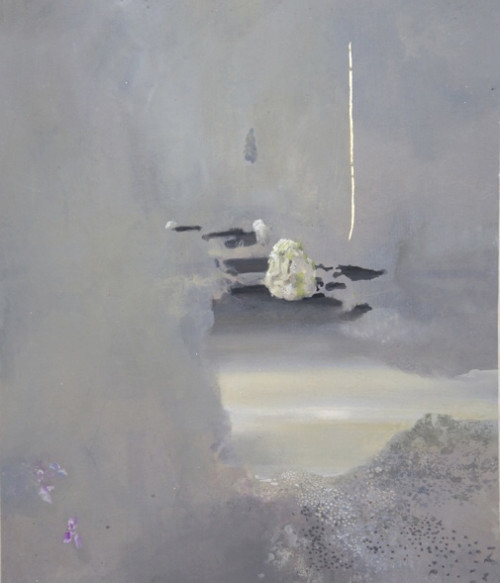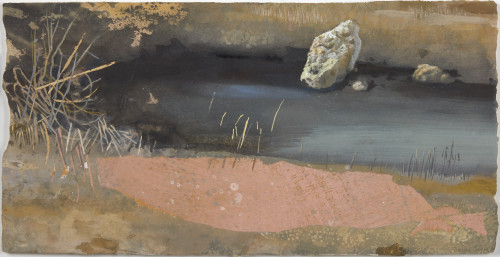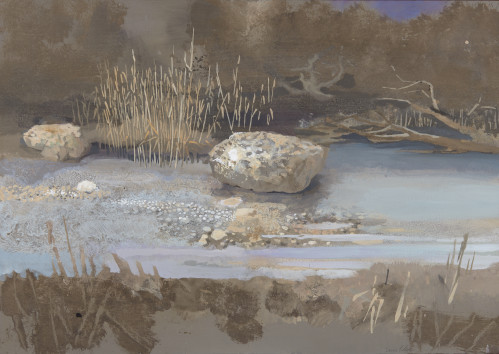Denis Polge
Denis Polge
France
Born in 1972
Videos
After studying cinema and philosophy, Denis Polge studied at the Ecole Nationale Supérieure des Beaux-Arts in Paris. He has pursued an independent career for more than ten years and has exhibited in numerous galleries in France and abroad. He has also published several books - Les eaux dormantes, (Le Promeneur / Gallimard, 2007) and Autres rives (Le Promeneur / Gallimard, 2009) - as well as limited edition books.
Denis Polge was born in Grasse in 1972.
artworks
sculpture
painting
What is less current than a miniaturist, and more incongruous - not to say artistically incorrect - than a young miniaturist? The era is one of strong lines, emotional overload, exaggerated proportions, generalized forcing, excess of principles. We no longer have room for thoroughness except on the side of the cuteness or the obsolete, porcelain and fragile ivory blades.
Indifferent to the agenda, and to its simplistic divisions, Denis Polge has chosen to re-evaluate, through a whole aspect of his work (one among others, which is what makes it the price), this forgotten dimension, despised: he loves what, in her, constrains the hand, induces a certain type of gaze, pushes contemplation to extremes, so to speak. He likes this dimension which is as much that of Fouquet as of Jean Hugo, of Persian artists as of Louis-Léopold Boilly (he is also a remarkable portrait painter).
But he obviously folds it for his own use. It inscribes it in its particular geometry (which applies to the few centimeters of a sheet of paper as well as to the large panels of a screen). Its space is, so to speak, suspended: neither abstract nor illusionist; as with the Persians, fragments of reality arise on a steep rock; clouds slip by on an abstract plane; walls intersect like angles of paper; the perspective tilts, as in the pavilions "with roofs removed" of the Japanese.
Resolute quotes or simple echoes, evocations and images of the floating world are deposited like a translucent film flush with paper (the grain of which he likes, the suppleness of which he likes) or silk, lightly washed. These realities overlap, juxtapose, slide over each other, as the elements of a collage might do; but it is only the appearance or the ghost of a collage, of a properly reinvented collage. These impossible compositions, these "incompossible" spaces, as Leibniz would have said, would rediscover all the freedom of the arabesque, and the lightness of the mobile; their essential data would be to escape all gravity (this gravity to which the dead bird yields, contrary emblem, a recurring theme in Denis Polge), and to obey their only laws: those of a mysterious weighting, that of the imagination.
Patrick Mauriès is director of the Le promeneur collection at Gallimard. He is a writer, specialist in English literature, fashion, decorative arts of the 20th century ...
videos
